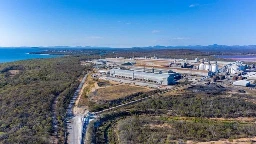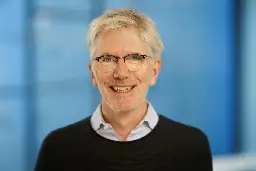The European Union and Moldova have agreed on an energy security plan to wean the country off its dependence on Russian gas supplies and integrate it into the 27-nation bloc’s network.

The European Union and Moldova on Tuesday agreed on an energy security plan aimed at weaning the country off its dependence on Russian supplies and integrating it into the 27-nation bloc’s network.
The EU’s executive branch, the European Commission, said that Moldova would receive 250 million euros ($258 million) this year — 40% of it by mid-April — after Russia’s state-owned energy giant Gazprom cut supplies on Jan. 1.
Daily electrical outages were imposed after hundreds of thousands of people in Moldova’s separatist pro-Russian Transnistria region were left without heating and hot water last month over an alleged $709 million bill for past supplies to Moldova.
The decision by Gazprom, which came into effect a day after a gas transit agreement between Russia and Ukraine expired, halted gas supplies to Transnistria’s gas-operated Kuciurgan power plant, the country’s largest, which provided a significant portion of Moldova’s electricity.
The commission said that its financial package will provide support to consumers in Moldova – a candidate country for EU membership – to help pay their rising electricity bills. Some 60 million euros ($62 million) is earmarked for 350,000 people left in the cold in Transnistria.
...
Greenland lawmakers consider a ban on foreign donations to political parties in face of Trump’s ambitions
Greenland’s legislature debated whether to prohibit political parties from receiving contributions “from foreign or anonymous contributors” after President Donald Trump laid out ambitions for the United States to take over the vast island that belongs to Denmark.

Greenland’s legislature debated Tuesday whether to prohibit political parties from receiving contributions “from foreign or anonymous contributors” after President Donald Trump laid out ambitions for the United States to take over the vast island that belongs to Denmark.
Inatsisartut, Greenland’s parliament, discussed the proposal that would also ban any single party from receiving domestic private contributions that exceed 200,000 Danish kroner (about $27,700) in total, or 20,000 kroner (about $2,770) for a single contributor.
The government of Greenland asked the parliament’s five-member presidency to consider a bill aimed to “protect Greenland’s political integrity” that would take effect immediately.
The bill “must be seen in light of the geopolitical interests in Greenland and the current situation where representatives of an allied great power have expressed interest in taking over and controlling Greenland,” according to a translation of a parliamentary document in Danish outlining the measure.
The move comes ahead of parliamentary elections that must be held no later than April in Greenland.
Kent Fridberg, a senior legal officer at parliament, said he did not know whether any such foreign donors had already contributed to Greenland’s political parties and the idea for the bill was “basically a preventative measure.”
...
Fridberg noted Trump’s expressed interest in Greenland — and said some Russian politicians had voiced a similar interest — and that parties on the island are generally funded by public means.
...
Here is a much better way for Europe's tech firms to catch up in global AI race (spoiler: a multilingual, fully open source, law-compliant, democratic and homegrown LLM): https://slrpnk.net/post/17978607
?
Back in July 2024, investigators leaked documents showing the correspondence between officers of Russia's foreign intelligence agency (SVR) responsible for “information warfare” with the West. The exiled Russian media outlet published a report on that. It's very illuminating:
The leaked documents, intended for various government agencies, reveal the Kremlin's strategy: spreading disinformation on sensitive Western topics, posting falsehoods while posing as radical Ukrainian and European political forces (both real and specially created), appealing to emotions — primarily fear — over rationality, and utilizing new internet platforms instead of outdated ones like RT and Sputnik. The documents also detail localized campaigns against Russian émigrés, including efforts to discredit a fundraiser for Alexei Navalny's Anti-Corruption Foundation who had moved to the United States.
Is this going to be another misnomer for a model that isn’t actually open? The quote doesn’t give me much hope.
The quote says it will be fully open. What makes you think it will not?
OpenEuroLLM: European AI alliance unveils LLM alternative to Silicon Valley and DeepSeek
As China’s DeepSeek threatens to dismantle Silicon Valley’s AI monopoly, the OpenEuroLLM has launched an alternative to tech’s global order.

cross-posted from: https://slrpnk.net/post/17978607
> Archived > > ... > > A European alliance has emerged with an alternative to tech’s global order. > > They call their project OpenEuroLLM. Like DeepSeek, they aim to develop next-generation open-source language models — but their agenda is very different. Their mission: forging European AI that will foster digital leaders and impactful public services across the continent. > > To support these objectives, OpenEuroLLM is building a family of high-performing, multilingual large language foundation models. The models will be available for commercial, industrial, and public services. > > Over 20 leading European research institutions, companies, and high-performance computing (HPC) centres have enlisted in the the project. Leading their alliance is Jan Hajič, a renowned computational linguist at Charles University, Czechia, and Peter Sarlin, the co-founder of Silo AI, Europe’s largest private AI lab, which was acquired last year by US chipmaker AMD for $665mn. > > They’re joined by an array of European tech luminaries. Among them are Aleph Alpha, the leading light of Germany’s AI sector, Finland’s CSC, which hosts one of the world’s most powerful supercomputers., and France’s Lights On, which recently became Europe’s first publicly-traded GenAI company. > > ... >
OpenEuroLLM: European AI alliance unveils LLM alternative to Silicon Valley and DeepSeek
As China’s DeepSeek threatens to dismantle Silicon Valley’s AI monopoly, the OpenEuroLLM has launched an alternative to tech’s global order.

cross-posted from: https://slrpnk.net/post/17978607
> Archived > > ... > > A European alliance has emerged with an alternative to tech’s global order. > > They call their project OpenEuroLLM. Like DeepSeek, they aim to develop next-generation open-source language models — but their agenda is very different. Their mission: forging European AI that will foster digital leaders and impactful public services across the continent. > > To support these objectives, OpenEuroLLM is building a family of high-performing, multilingual large language foundation models. The models will be available for commercial, industrial, and public services. > > Over 20 leading European research institutions, companies, and high-performance computing (HPC) centres have enlisted in the the project. Leading their alliance is Jan Hajič, a renowned computational linguist at Charles University, Czechia, and Peter Sarlin, the co-founder of Silo AI, Europe’s largest private AI lab, which was acquired last year by US chipmaker AMD for $665mn. > > They’re joined by an array of European tech luminaries. Among them are Aleph Alpha, the leading light of Germany’s AI sector, Finland’s CSC, which hosts one of the world’s most powerful supercomputers., and France’s Lights On, which recently became Europe’s first publicly-traded GenAI company. > > ... >
OpenEuroLLM: European AI alliance unveils LLM alternative to Silicon Valley and DeepSeek
As China’s DeepSeek threatens to dismantle Silicon Valley’s AI monopoly, the OpenEuroLLM has launched an alternative to tech’s global order.

...
A European alliance has emerged with an alternative to tech’s global order.
They call their project OpenEuroLLM. Like DeepSeek, they aim to develop next-generation open-source language models — but their agenda is very different. Their mission: forging European AI that will foster digital leaders and impactful public services across the continent.
To support these objectives, OpenEuroLLM is building a family of high-performing, multilingual large language foundation models. The models will be available for commercial, industrial, and public services.
Over 20 leading European research institutions, companies, and high-performance computing (HPC) centres have enlisted in the the project. Leading their alliance is Jan Hajič, a renowned computational linguist at Charles University, Czechia, and Peter Sarlin, the co-founder of Silo AI, Europe’s largest private AI lab, which was acquired last year by US chipmaker AMD for $665mn.
They’re joined by an array of European tech luminaries. Among them are Aleph Alpha, the leading light of Germany’s AI sector, Finland’s CSC, which hosts one of the world’s most powerful supercomputers., and France’s Lights On, which recently became Europe’s first publicly-traded GenAI company.
...
Done, sorry.
Sorry, it's corrected now.
As an addition: https://www.4dayweek.co.uk/employers
Send them an application: https://www.4dayweek.co.uk/employers
All the best! :-)
"Effects of climate change outweigh the interests of developers:" UK government green light for two new oilfield permits "unlawful" as it does not take into account CO2 emissions, court rules
cross-posted from: https://slrpnk.net/post/17863364
> >A court [in the UK] has ruled that consent for two new Scottish oil and gas fields was granted unlawfully and their owners must seek fresh approval from the UK government before production can begin. > > >The written judgement on the Rosebank and Jackdaw fields [off Shetland] came after a case brought by environmental campaigners, Uplift and Greenpeace, at the Court of Session in Edinburgh. > > >In his judgement, Lord Ericht said a more detailed assessment of the fields' environmental impact was required, taking into account the effect on the climate of burning any fossil fuels extracted. > > >... > > >Shell's Jackdaw gas field in the North Sea was originally approved by the previous UK Conservative government, and the industry regulator, in summer 2022. > > >Permission for the Rosebank oil development, 80 miles west of Shetland in the North Atlantic, was granted in autumn 2023. > > >In a 57-page judgement, Lord Ericht wrote that there was a public interest in having the decision "remade on a lawful basis" because of the effects of climate change - which he said outweighed the interests of the developers. > > ...
"Effects of climate change outweigh the interests of developers:" UK government green light for two new oilfield permits "unlawful" as it does not take into account CO2 emissions, court rules
>A court [in the UK] has ruled that consent for two new Scottish oil and gas fields was granted unlawfully and their owners must seek fresh approval from the UK government before production can begin.
>The written judgement on the Rosebank and Jackdaw fields [off Shetland] came after a case brought by environmental campaigners, Uplift and Greenpeace, at the Court of Session in Edinburgh.
>In his judgement, Lord Ericht said a more detailed assessment of the fields' environmental impact was required, taking into account the effect on the climate of burning any fossil fuels extracted.
>...
>Shell's Jackdaw gas field in the North Sea was originally approved by the previous UK Conservative government, and the industry regulator, in summer 2022.
>Permission for the Rosebank oil development, 80 miles west of Shetland in the North Atlantic, was granted in autumn 2023.
>In a 57-page judgement, Lord Ericht wrote that there was a public interest in having the decision "remade on a lawful basis" because of the effects of climate change - which he said outweighed the interests of the developers.
...
U.S. President Trump wants more drilling, but the oil market is already saturated with hundreds of idle oil leases sitting untapped in the Gulf of Mexico
Despite President's Trump directives, oil companies can't drill if there is little market for their product.

...
>Of the 2,206 active leases in the Gulf of Mexico, only a fifth are producing oil, according to records from the Bureau of Ocean Energy Management, which regulates offshore drilling. Oil industry executives and analysts say the current number of 448 oil-producing leases is unlikely to grow significantly, even if Trump makes good on promises to expand leasing opportunities and expedite drilling permits.
>The market is saturated with oil, making companies reluctant to spend more money drilling because the added product will likely push prices down, cutting into profits.
>“It’s not the regulations that are getting in the way, it’s the economics,” said Hugh Daigle, a professor of petroleum engineering at the University of Texas in Austin. “It’s true that there are a bunch of undeveloped leases in the Gulf, and it’ll stay that way if we continue to see low or stagnant oil prices.”
...
Mining giant Rio Tinto says wind and solar make economic sense, but LNP stands in way of its plans to save smelters
Rio Tinto boss says renewables are essential for the future of its assets. But the new Queensland LNP state government may stand in its way.

>The head of mining giant Rio Tinto has once again underlined his company’s commitment to renewables, but questions remain about the future of its giant smelters and refineries in Queensland after the new LNP state government put a halt to new wind farm approvals.
>The decision by the Queensland LNP – first reported by Renew Economy last week – puts a pause on the approvals of four major wind projects in the state – including the 1.4 gigawatt Bungapan wind project that is essential to Rio’s plans to wean its energy intensive industries off its dependence on coal.
>The decision by the Queensland LNP, which follows their refusal in opposition to endorse the previous Labor government’s renewable energy targets, has rattled many in the energy industry.
>The state has the lowest share of renewables of any in the country, a situation that would have been unchanged even with Labor’s target of 80 per cent renewables by 2030, but the LNP intervention seems sure to make it even more of a laggard.
>...
Probably, and with the new president it is arguably not so easy in the near future for the U.S. I'm afraid.
I am not sure what you want to say. In a nutshell, the article says that the EU must align its energy policies across countries to increase its own manufacturing output and, thus, gaining a higher degree of independence. This is true also for the U.S. and any country or bloc imho.
200 UK Companies Permanently Move To 4-Day Work Week Without Loss Of Pay
In a landmark move reinventing the working week in the United Kingdom, at least 200 British companies have signed up for a permanent four-day working week for all their employees without any loss of pay.

cross-posted from: https://slrpnk.net/post/17862588
> Archived > > >In a landmark move reinventing the working week in the United Kingdom, at least 200 British companies have signed up for a permanent four-day working week for all their employees without any loss of pay. > > >Together, these 200 companies employ over 5,000 people, and among these charities, marketing and technology firms are the best-represented, a report by The Guardian said quoting the 4 Day Week Foundation. > > >... > > >The change was first adopted by around 30 marketing, advertising and press relations firms. The suit was followed by 29 charity, NGO, and social care industry-based organisations, and 24 technology, IT and software firms. Later, another 22 companies in the business, consulting and management sectors also joined the bandwagon and permanently offered four-day weeks to staff, according to The Guardian report.
200 UK Companies Permanently Move To 4-Day Work Week Without Loss Of Pay
In a landmark move reinventing the working week in the United Kingdom, at least 200 British companies have signed up for a permanent four-day working week for all their employees without any loss of pay.

>In a landmark move reinventing the working week in the United Kingdom, at least 200 British companies have signed up for a permanent four-day working week for all their employees without any loss of pay.
>Together, these 200 companies employ over 5,000 people, and among these charities, marketing and technology firms are the best-represented, a report by The Guardian said quoting the 4 Day Week Foundation.
>...
>The change was first adopted by around 30 marketing, advertising and press relations firms. The suit was followed by 29 charity, NGO, and social care industry-based organisations, and 24 technology, IT and software firms. Later, another 22 companies in the business, consulting and management sectors also joined the bandwagon and permanently offered four-day weeks to staff, according to The Guardian report.
Fossil-fuel hacks are lying about renewable energy; don't let them get away with it

This is an explanation focused on the U.S. market, but it's principles can be perfectly applied to any region.
It is a very good way showing why climate change denials arguing that "renewables are too expansive" is outright wrong.
Expert Says Europe's Solar Manufacturing Revival Hinges On Collaboration Among European Countries As The EU Sets New Record for Renewable Energy Use
PV Talk: ETIP PV chair Rutger Schlattmann discusses why fostering innovation through international cooperation is at the heart of efforts to rebuild Europe’s PV manufacturing sector.

cross-posted from: https://slrpnk.net/post/17862259
> Archived > > >As the world races to decarbonise its energy systems, Europe faces mounting challenges in competing with global powerhouses like China and the US in PV manufacturing. To address these challenges, the European Technology and Innovation Platform for Photovoltaics (ETIP PV) has emerged as a key player in fostering collaboration, innovation and strategic policymaking among European countries. > > >“PV is a global technology,” Rutger Schlattmann, chair of ETIP PV and head of the Solar Energy division at Helmholtz Zentrum Berlin, tells PV Tech Premium. “The technology is developed worldwide, and some of the effort should be done across countries because these challenges are bigger than what individual countries – especially the smaller ones – can afford.” > > .... > > Meanwhile, the EU sets a new record for renewable energy use in 2024. > > >In the European Union (EU), 47% of electricity now comes from renewable sources like wind and solar, a new record according to a report from the think tank Ember. This is a far higher percentage than in other countries, including the United States and China, where about two-thirds of energy comes from fossil fuels such as oil, coal, and gas. > > >... > > >The share of electricity produced by renewables jumped to 47% last year compared to 34% in 2019, in large part due to strong growth in solar and wind energy. In 2024, 11% of the EU’s electricity came from solar power, 17% from wind, and 24% from nuclear. The share produced by traditional fossil fuels dropped from 39% in 2019 to 29% in 2024.
Expert Says Europe's Solar Manufacturing Revival Hinges On Collaboration Among European Countries As The EU Sets New Record for Renewable Energy Use
PV Talk: ETIP PV chair Rutger Schlattmann discusses why fostering innovation through international cooperation is at the heart of efforts to rebuild Europe’s PV manufacturing sector.

>As the world races to decarbonise its energy systems, Europe faces mounting challenges in competing with global powerhouses like China and the US in PV manufacturing. To address these challenges, the European Technology and Innovation Platform for Photovoltaics (ETIP PV) has emerged as a key player in fostering collaboration, innovation and strategic policymaking among European countries.
>“PV is a global technology,” Rutger Schlattmann, chair of ETIP PV and head of the Solar Energy division at Helmholtz Zentrum Berlin, tells PV Tech Premium. “The technology is developed worldwide, and some of the effort should be done across countries because these challenges are bigger than what individual countries – especially the smaller ones – can afford.”
....
Meanwhile, the EU sets a new record for renewable energy use in 2024.
>In the European Union (EU), 47% of electricity now comes from renewable sources like wind and solar, a new record according to a report from the think tank Ember. This is a far higher percentage than in other countries, including the United States and China, where about two-thirds of energy comes from fossil fuels such as oil, coal, and gas.
>...
>The share of electricity produced by renewables jumped to 47% last year compared to 34% in 2019, in large part due to strong growth in solar and wind energy. In 2024, 11% of the EU’s electricity came from solar power, 17% from wind, and 24% from nuclear. The share produced by traditional fossil fuels dropped from 39% in 2019 to 29% in 2024.

